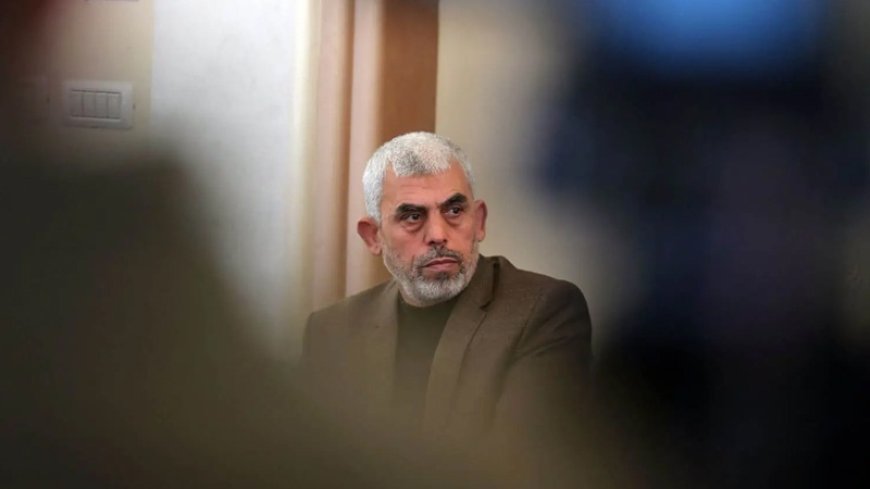Yahya Sinwar Change American Foreign Policy in West Asia

American foreign policy in West Asia has always depended on a careful balancing act between keeping ties to important Arab countries and bolstering its friend, Israel. However, owing in part to a prominent person who has emerged as both a symbol of Palestinian resistance and a major strategist— Yahya Sinwar, commander of Hamas and mastermind behind the recent Al-Aqsa Storm operation—this equilibrium has been seriously upset as recent events indicate.
The New York Times recently published a harsh analysis called "How Biden's Policy Failed in West Asia," stressing how U.S. influence in the area has been eroded. Based on the report, Sinwar—whose approach has essentially isolated Israel on the international scene and opposed U.S. diplomatic aspirations—is central in this narrative.
Yahya Sinwar's Part in Shifting American Policy
Rising in Hamas's ranks, Sinwar is viewed as a political strategist as well as a military commander. Many consider his coordination of the Al-Aqsa Storm operation to be a turning point in the area. His leadership has brought global focus on the suffering of Palestinians long eclipsed by more general geopolitical issues such the Abraham Accords, a set of agreements meant to restore ties between Israel and various Arab nations.
While Israel may have made progress in forming alliances with Arab countries, the Palestinian issue remains unresolved and continues to be a destabilizing element in the region, according to the New York Times, which claims Sinwar's actions have exposed a significant weakness in Israeli foreign relations. The Al-Aqsa operation, which left Israel in disarray trying to react, was a sobering reminder that normalizing accords cannot overlook or brush beneath the floor the long-standing struggle.
The International Isolation of Israel: Result of American Policy Failure?
Sinwar's acts have had effects beyond only military operations. The Times claims that his approach has undermined Israel's worldwide reputation, likening this to the international isolation apartheid South Africa went through. Once seeming immune to such demands, the essay suggests Israel finds itself more vulnerable than ever and its legitimacy is under more doubt.
This change transcends military losses or diplomatic disappointments. It also shows a more general failing in American foreign strategy in West Asia. Former Council on Foreign Relations president Richard Haas underlined this issue, noting that American influence on foreign government policy has decreased. Once a major actor, Washington is now having greater trouble controlling the parameters of security and peace in the area.
The Abraham Accords: Shattered Legacy
Promoted by the Trump administration and accepted by Israel, the Abraham Accords were supposed to usher in a new chapter of Arab-Israeli relations. It seemed for a brief while that the Arab world was ready to go past the Palestinian problem and concentrate on security and economic cooperation with Israel. Still, as Sinwar's latest moves show, these accords have not been a magic bullet for the more severe problems in the area.
The Al-Aqsa Storm operation destroyed the delusion that the Abraham Accords had minimized the Palestinian cause. By means of his aggressive activities and rhetoric, Sinwar attracted international attention back to the unsolved problems of occupation, statehood, and human rights. As the Times reported, Sinwar's strategies made even nations having normalized relations with Israel rethink their policies.
Changing Views in America and Beyond
The changing mindset in the U.S., particularly among younger generations, is among the most arresting feature of this changing terrain. As The New York Times noted, even in American quarters often supporting Israel, the concept of a free Palestine has attracted growing favor. Long pillar of U.S. foreign policy, the younger, more progressive sections of the American people are challenging the unquestioning support for Israel.
This goes beyond a passing fad. Notable experts like as Franklin Foer, cited in the Times, have labeled Washington's West Asian strategy as a "anatomy of failure." The U.S. has struggled to handle a scenario whereby Palestinian resistance activities inspire fresh sympathy while its close friend Israel is progressively perceived as alone and weak on the international scene.
What lies ahead for American policy?
If Sinwar's ascent is any guide, the United States has to change how it approaches West Asia. Dependency on military might, economic sanctions, and diplomatic accords like as the Abraham Accords has been unable to solve the fundamental problems aggravating the war. As things stand, American foreign policy may have unintentionally added to further instability rather than providing peace.
The issue remains: can U.S. officials adjust to a fast shifting environment where players like Yahya Sinwar may turn the path of history with well-planned operations while Washington struggles with its declining influence? The response may decide U.S. engagement in West Asia's future as well as the chances for peace in one of the most unstable areas of the planet.













































